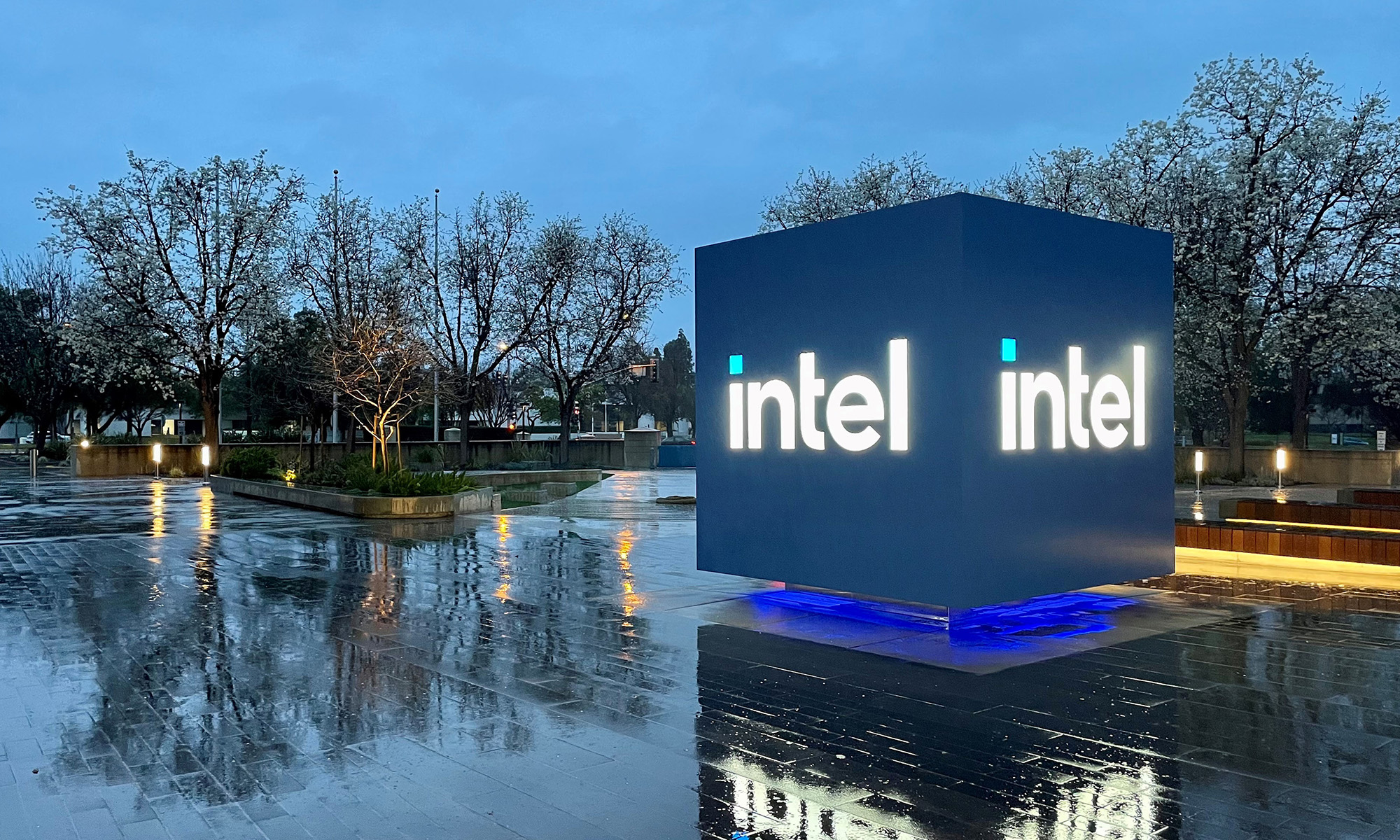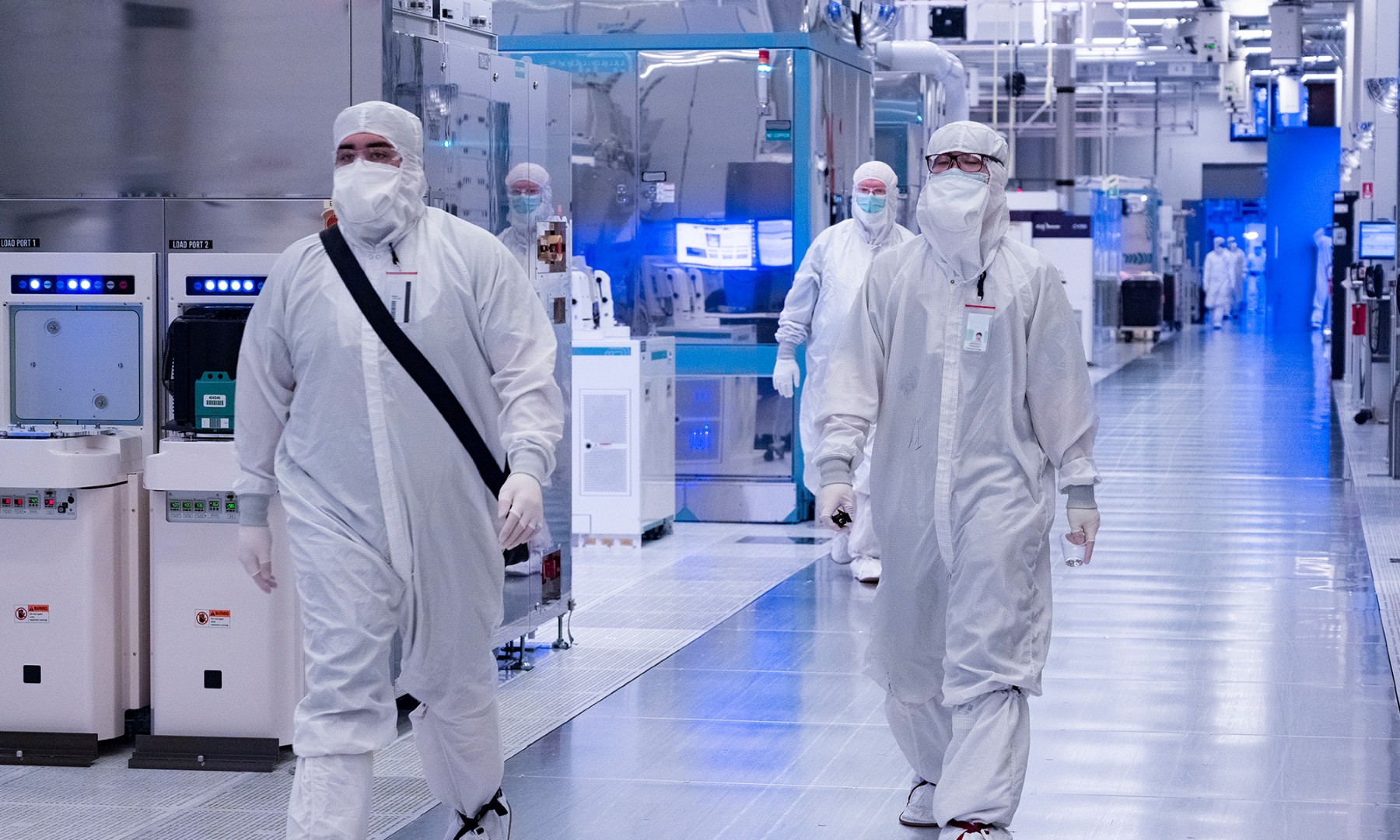
Intel's latest Skylake processor manufactured in its 14-nanometer technology. Image source: Intel.
For quite some time, I have been frustrated with the fact that analysts have refused to press Intel (INTC +6.47%) management on a number of critical topics on the quarterly earnings calls. Fortunately, Intel hosted a very nice "virtual" online stockholder meeting on May 19 and, as luck would have it, I was able to submit and have answered two important questions.
In this column, I'd like to go over the questions I asked as well as the answers that management provided.
On manufacturing technology
The first question that I submitted was the following:
Your competition have said that they will transition to 10-nanometer manufacturing by the end of the year, earlier than Intel will. Can investors have confidence that Intel has a clear manufacturing lead?
CEO Brian Krzanich responded with the following (emphasis mine):
My commitment to you is that yes, you can, as an investor, count on Intel having a clear manufacturing lead. You have to remember these measurements don't necessarily mean all the same thing and how people are measuring the 10-nanometers versus 14-nanometers is different.
You really need to take a look at the performance of the devices and what's being delivered. And, so, we believe our 14-nanometer technology will still outperform any of the other technologies that'll be introduced in the next several years. Our 10-nanometer technology will again make another large leap in performance and be even further ahead than we think the 14-nanometer will be.
Although most investors don't have the ability to benchmark individual transistors from the various chip companies to verify Krzanich's claims, the statement from the chip giant's chief executive is quite clear.
I also appreciate that Krzanich talked about transistor performance rather than transistor density, as the former is probably more important in terms of product competitiveness than the latter.
On competition in servers
The second question that I submitted was the following:
Does Intel believe that it can continue to maintain clear product leadership over Advanced Micro Devices (AMD 2.08%), even as it rolls out its new Zen-based PC and server products?
Here's Krzanich (emphasis mine):
I'm not going to comment on just one company, I'm just going to take a look at the industry in general and say: If we look at all of our competition out there, yes we believe that our sixth generation Xeon E7 family of products will continue to be a leadership product, far and away leaders over all of our competition.
And, you'll continue to see a series of products that are announced this year that will continue to drive that performance. So, yes, we're very comfortable with our server products and will continue to have leadership.
Given how important it is for Intel to grow its revenue in the server market, particularly as the PC market continues to shrink, the company can't afford to field anything but leadership products in this market. Krzanich seems quite confident that the current product line is competitive.
Though Krzanich's confidence is reassuring, Intel investors will probably have to wait until the 2017 time frame -- when AMD and many of the other companies vying for a piece of Intel's server chip pie will release new products -- to see whether Intel can maintain its commanding market share and/or margins (largely a function of product competitiveness) or not.
A nice preview for the investor meeting
I appreciate that Intel hosted a "virtual" shareholder meeting this year, allowing investors with pressing questions to submit said questions and get them answered. That said, I look forward to the company's investor meeting, which will likely be hosted in November, during which the company will likely go into more depth on these topics -- and more.







